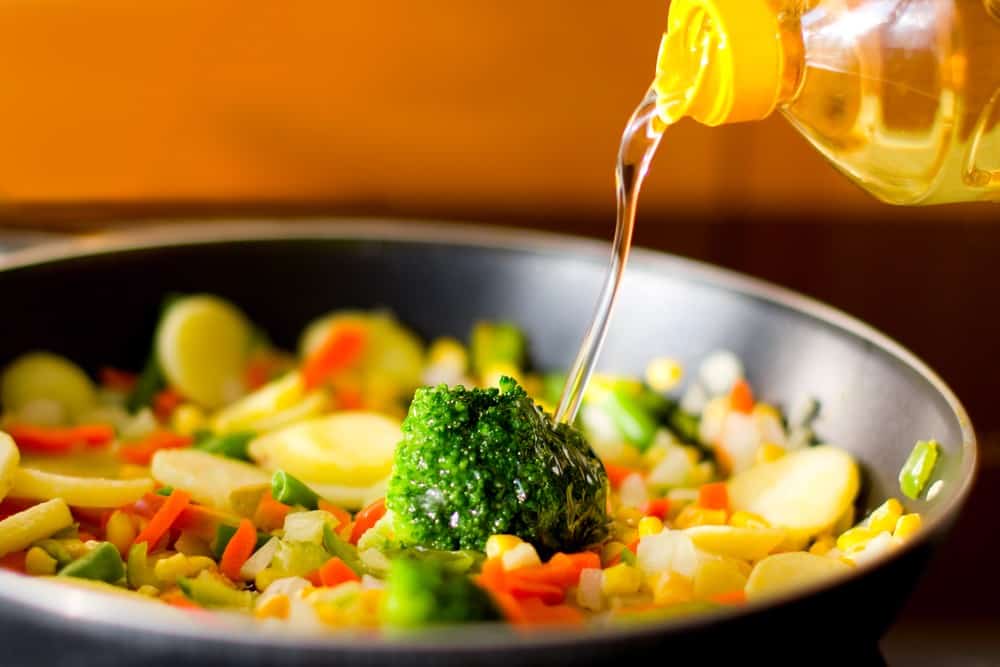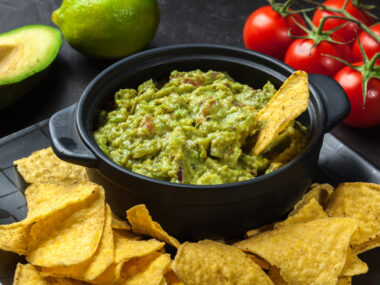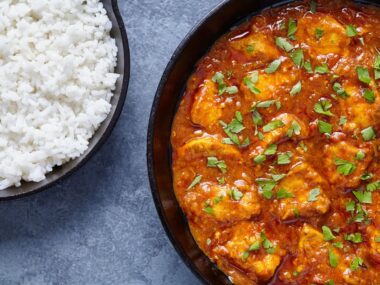Cooking oil is a staple in every home kitchen. It comes in different variations and sources. But one thing’s for certain, cooking won’t be complete without good cooking oil.
Speaking of cooking oil, there are two most common cooking oils that we all have in our kitchen: olive oil and vegetable oil. Though they’re both oils, they’re not the same.
So what’s the difference between Olive Oil and Vegetable Oil? Olive Oil is a type of cooking oil or liquid fat extracted specifically from olives. While Vegetable Oil is another type of cooking oil or liquid fat extracted from seeds or fruits.
What is Olive Oil?
Olive Oil is extracted by fresh whole olives until it’s natural oils are produced. The method used is by pressing the olives in a machine operated manually or automatically.
This type of oil is not only used for cooking but is also used for other purposes such as fuel for lamps, an ingredient for cosmetic products, and pharmaceutical uses. It also plays an important role in religious ceremonies or rituals.
Spain is the top producer of olive oils, followed by Italy and Greece. These are produced in different varieties of olive cultivars. It varies in flavor, texture, and shelf life tailored fit for different uses. Its color can range from green to violet to black, depending on fruit maturity.
Olive trees are most common in the Mediterranean area. These were used since the 8th millennium BC.
What is Vegetable Oil?
Vegetable Oil extract oils from common seeds such as soybean, rapeseed, and cocoa butter. While for the fruits it’s usually extracted from palm oil and rice bran oil.
Other vegetable oil sources widely used all over the world are corn, sesame, hazelnut, peanut, sunflower, and grapeseed. Vegetable oils being used in other countries may vary on the geographical location and availability of oil sources.
These vegetable fats are a mixture of triglycerides, the same component found in animal fats. Other than being used in cooking, it can also be used in industrial purposes and fuel substitutes such as biofuels.
This has been used as early as 4500 BCE by Israel and Palestine.
Can We Substitute Vegetable Oil to Olive Oil?
Yes, you can! Though there will be a huge difference when it comes to taste, the benefits it brings are way better and healthier.
Why Use Olive Oil instead of Vegetable Oil?
Most of the fat content present in olive oil is monounsaturated fat. According to research by Health Experts by American Heart Association (AHA), this kind of fat is essential to your health.
Always opt for the Extra Virgin Olive Oil since it’s processed in neither heat nor solvents. The oil’s nutrients are still intact since the process didn’t disrupt its quality and original form.
It’s important to keep in mind that everything needs to be taken in moderation. Olive oil is still considered as “fat” and too much intake may lead to health issues.
Tips in Subbing Your Vegetable Oil to Olive Oil
Whether you’re cutting down your calories or just opting for a healthier alternative, we got you covered.
Here are our healthy tips and an easy way of using olive oil:
Change how you Saute your food.
Saute-ing the dish just makes the food tastier and aromatic. We typically use heated regular cooking oil, drop some garlic and onions, then followed by the main ingredient. Little did we know that a tablespoon of oil can pack huge calories. Start using olive oils instead to get rid of unwanted trans fat and extra calories in your dish. It will feel less fatty and guilt-free upon consuming.
Improve with your Salad Dressings.
Did you know that a spoonful of regular caesar dressing or mayo has a lot of calories? I didn’t mean to bum you up but it’s true. You’ve cut down your starch and meat, but still, you put heaps of salad dressing in your veggies. That doesn’t sound right. Try eliminating those in your pantry and sub it with an olive oil dressing. A mixture of 2 tbsps of olive oil, a dash of salt and pepper, a squeeze of lemon and a tbsp of balsamic vinegar will make a good healthy salad dressing. Lesser calories and easy to make.
Bake a Healthier Dessert.
A cookie can contain loads of butter and a moist cake has a lot of vegetable shortening. Yes, it makes it taste better and offers great texture, however it is unhealthy. You may substitute olive oil when baking cookies for a healthier alternative.
The taste and texture are different but it’s healthier for you. For best results, find a downloadable olive oil conversion chart online. It’ll guide you with baking measurements on specific desserts.
Say Goodbye to Deep-Fried Foods.
I know we love our classic fried chicken and french fries. It just tastes so good especially if deep-fried in boiling oil. It’s crunchy and addicting. However, it’s one of the most unhealthy foods that can make your body suffer. Do away with your deep fryer and make use of your oven instead.
If you want a crispy chicken, you may roast it and dab some olive oil instead of the common butter. You can do the same with your french fries. The texture and taste are still the same, plus it’s way healthier. You can do the same with any other dishes and substitute fats with olive oil when roasting.
Use for Bread and Pasta.
Baking bread or even making pizza doughs uses vegetable shortening or even butter. Try switching it up with olive oil. Italy uses it a lot in their bread and it tastes so divine. Substituting fat content cuts down extra calories that your body doesn’t need.
You can also do the same when making pasta. It doesn’t have much difference except for it’s improved taste. Cheat days shouldn’t be unhealthy but satisfying and healthy. Enjoy your favorite pastries and pasta dishes without compromising your health.
Which One is a Healthier Option?
Olive oil is mostly preferred by health experts for its healthier content. No wonder it pairs up well with salads, healthy pasta, and bread.
There are 3 types of olive oils: extra virgin olive oil, virgin olive oil, and refined olive oil. The extra virgin olive oil is the highest quality out of the three, which contains 0.8% free acidity and boasts the best taste.
A tablespoon of olive oil contains 119 calories, 13.5g of fat, 2g of saturated fat, 73g of monounsaturated fat and 11g of polyunsaturated fat. It also has vitamins E and K, plus Omega 3 and 6.
While Vegetable Oil is widely used, most health-conscious are trying to stay away from it and find another alternative. Due to its higher levels of triglycerides, it can increase your body’s cholesterol content and even body fat.
To provide an example, let’s pick Palm oil as a comparison from olive oil. A tablespoon of palm oil has 120 calories, 13.6g of fat, 49.3g of saturated fat, 40g of monounsaturated fat, and 9.3% of polyunsaturated fat. Also, it doesn’t have essential minerals and vitamins beneficial for the body.
Vegetable oil goes through a process called hydrogenation. Trans fatty acids or also known as trans fat (the unhealthy fat you don’t want in your body), are formed in a hydrogenation reactor. It increases as much as 40% by weight after the process. Hydrogenated oils, especially partially hydrogenated oils are packed with trans fatty acids and said to be unhealthy.
Most fast food and our all-time favorite fried foods are deep-fried using vegetable oils. Also, our favorite desserts are added with vegetable shortening to make it taste good, fluffy, and moist. Though it makes the food taste better, it might create some serious health risks in the future.
But also note that there are other varieties of vegetable oils that are healthier. Consider using canola oil or avocado oil. They have higher polyunsaturated fats than trans fats.
My Key Takeaway
I personally use olive oil instead of vegetable oil. I like eating salads, pasta, and pizzas a lot. I have learned over time by trial and error on how to perfect these dishes by substituting fats with olive oil.
At first, the taste wasn’t what I wanted it to be, but when I tried using Extra Virgin Olive Oil, it totally changed the game. Its flavor makes it unique and quite nutty on the side making the food still taste savory.
It’s also important to note that olive oils are not good at cooking over high heat. It only works well with medium heat. That’s why on our tips above, we encouraged you to roast or maximize the use of your oven. Deep frying with olive oil is not the best option since it smokes a lot and can easily burn the food.
I hope we were able to give clarity between olive oil and vegetable oil. Always remember, health is wealth!


